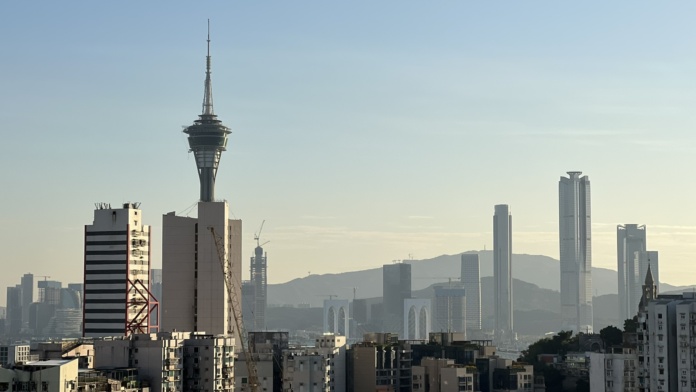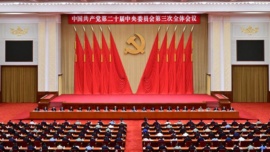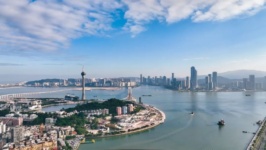Chief Executive Ho Iat Seng has expressed hope that Macau’s overall economy will see double-digit growth this year compared to last year.
The chief executive made the upbeat prediction on Monday at the Macau leg of an eight-day media campaign to promote economic investment in the Greater Bay Area, which includes Hong Kong and Macau.
According to official figures, gambling accounted for 40 per cent of the city’s gross domestic product (GDP) in 2023 – down from around 63 per cent during the city’s heyday.
“Although the overall GDP last year was still lower than in 2019 before the pandemic, we are confident that it will recover to a better level this year,” Ho said.
Macau’s GDP reached MOP434.67 billion (US$54 billion) in 2019, with a recovery to 80 per cent observed in 2023.
The first quarter of 2024 saw a year-on-year increase of 25 per cent.
Commenting on the role of Hong Kong and Macau in the Greater Bay Area (GBA), a metropolitan region in southern China comprising nine major cities in Guangdong other than the two SARs, Ho described the former as a “big brother” to the latter.
“Hong Kong is an international financial centre that has been supporting Macau for years,” the chief executive told the media.
No GBA city should ‘roll inwards’
Ho also urged GBA cities to avoid pushing each other into a state of “involution and homogenisation”, with the former being a newly coined term to describe burnout in cut-throat competition.
“GBA cities should develop their distinctive industries based on their own positioning,” he stressed during the media briefing. “Macau seems to be weak in other industries, but we’re confident about co-development with the rest of the GBA.”
The Macao leader also spoke highly of Hengqin’s development prospects, saying that government officials from the SAR and Guangdong province will be able to work together on the 106-square-kilometre island, which is about three times the size of Macau.
It is a challenging task for the governments of Guangdong and Macau to establish a “system of joint consultation and governance”, Ho stressed.
“Just imagine that the Macau SAR government operates under a capitalist system, while working with the Guangdong provincial government under a socialist system,” Ho said.
“However, in the past three years, my colleagues from both governments have successfully integrated”.
“They have been able to reach consensus on problem-solving perspectives and approaches, which is of the utmost importance,” he added.
“If there were conflicting thoughts from senior officials of the two regions, it would be difficult for those at lower levels to start to work.”





















